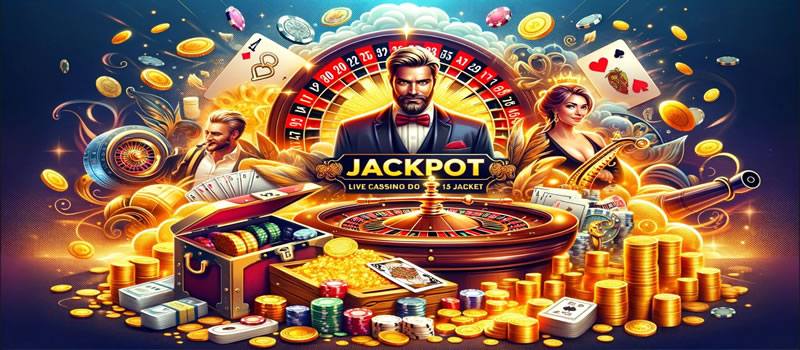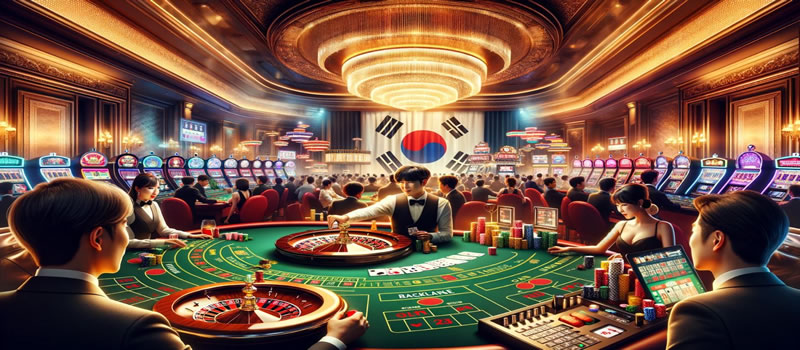The allure of the jackpot is incredibly powerful that people from all walks of life are drawn to it. It presents a nearly irresistible pull comes from the chance of winning a sizable quantity of money through gaming at casinos, participating in lotteries, or playing games of chance. For millions of people around the world, the idea of becoming wealthy and gaining financial independence in an instant holds great appeal. Numerous mental triggers play a role in the jackpot's allure.
Main Points
- The allure of the jackpot: The thrill of winning big draws people in due to the potential for life-changing rewards.Dopamine and the jackpot effect: The brain's response to potential rewards, such as winning a jackpot, is fueled by the release of dopamine, creating a feeling of pleasure and drive.The role of risk and reward: Our draw to jackpots is fueled by the combination of risk with the possibility of reward, engaging the brain’s reward circuits.The psychology of hope and optimism: The chance of a big win impacts our mindset, fostering a sense of hope and positive expectation for the future.The impact of social and cultural factors: The jackpot’s appeal to us is influenced by societal values, cultural norms, and social influences.
The ability to enjoy luxury without worrying about money and the possibility of financial liberation is highly appealing to many. The attraction of potentially affording anything, such as luxurious clothing or exotic trips, motivates people to seek out major wins. Also, a major part of the jackpot's appeal stems from its unexpected nature & unpredictability. One cannot easily duplicate the excitement that is felt when imagining a big win with a single lottery ticket purchase or by spinning the wheel for a large payout. The allure of the jackpot also taps into people's primal need for adventure and excitement.
The chance of getting rich offers the promise of a thrilling new life free from the routine of day-to-day living. Lots of individuals are driven to pursue the ultimate jackpot prize because they feel a deep connection in the concept of taking a risk & possibly coming out on top. The thrill of placing a huge bet or the suspense of waiting for the lottery results are just two examples of the many ways in which jackpots attract us because they represent human nature's need for thrills and adventures. Dopamine's Role in Anticipating Wins. Dopamine plays a major role in our draw to jackpots, which is why jackpots are irresistible.
A neurotransmitter called dopamine is released in reaction to pleasurable experiences like indulging in delectable food, taking part in enjoyable activities, and yes, winning big. Dopamine plays a crucial role in the brain's reward system. Our brains release dopamine in anticipation of a possible reward, like winning the lottery, which feels great and makes us want to go after the reward even more. The Dopamine-Propelled Chase of Massive Victories. There’s a powerful drive to seek out big wins by the strong psychological pull that is created when dopamine is released in response to possible rewards.
The possibility of winning the lottery causes the brain to release a large amount of dopamine, which produces an irresistible rush and joy. This dopamine surge that drives our desire to take chances in the hopes of striking it rich & pulls us towards jackpots. The dark side of dopamine: dopamine’s downside. The brain releases dopamine in a cascade when one is expecting great success, which can create an extremely addictive feeling of excitement and anticipation. Some people develop an addiction to gambling, which can be explained by dopamine's role in attracting us to jackpots. A powerful psychological force that can result in compulsive behavior & a loss of self-control is driven by the dopamine released for big win potential.

Humans' innate drive for risk is closely tied to the allure of the lottery. The chance of a huge win is a risky proposition that draws in our deep need for risk and excitement. Our interest in jackpots is fueled by the risk and excitement that comes with going after big victories. Lots of people find great resonance in the idea of taking a risk and possibly hitting it big, which pushes them to gamble in the hopes of winning the ultimate lottery prize. Our evolutionary past as hunter-gatherers may also be used to explain the role that risk and reward play in our fascination with jackpots.
Taking chances has been crucial to human survival throughout our evolutionary past because it frequently meant the difference between gathering food and going hungry. Because our ancestors found this behavior beneficial in securing resources, it is ingrained in our brains to look for opportunities with high rewards. Our natural desire for risk and reward continues to influence us today, causing us to be drawn to jackpots and urging us to take more risks in the hopes of hitting big.
Risk and reward drive our pull to jackpots, which relates to our need for independence and control over our own lives. The potential for wealth offers the chance to live life without limits and on one's own terms. The click here opportunity to take a risk and possibly making huge gains taps into our innate need for independence and personal agency, which motivates us to go for big wins in the quest for financial independence. Our attraction to jackpots is largely driven by the optimism and hope that big wins inspire. The chance for a massive win sparks hope for a better future, which bolsters our confidence and inspires us to aim for large wins.
It is difficult to resist the sense of hope that comes from the thought that one fortunate event has the potential to transform our lives. The possibility of vast wealth taps into our desire for optimism and hope, pushing us to take risks in the quest for financial security and financial stability. The psychology of optimism and hope also has a significant impact on how we think about going after big victories.
We are energized by hope and we are motivated to pursue big wins despite the odds because we believe in the possibility of winning big. This sense of hope and excitement can be highly addictive. We gamble for financial freedom because we have an unyielding optimism that one lucky win could change our future. The role optimism plays in our mindset when it comes to going for big wins also connects to our deep desire for control of our life choices. Our optimism is fueled by the possibility of striking it rich, which drives us to gamble in the search for financial freedom and freedom from financial constraints. It is impossible to overestimate the power of social and cultural pressures on our jackpot fascination.
We are continuously exposed to messages that strengthen the allure of getting rich, with media portrayals of overnight millionaires to societal norms to attain financial success. Our attitudes toward chasing large wins are shaped by cultural and social messages, which fuel our jackpot addiction and spur us to take chances in the quest for financial security. Peer pressure and social norms are just two more examples of how social and cultural factors affect our attraction to jackpots. Chasing big wins is seen as an admirable, glamorous, and exciting pursuit in many social circles.
Individuals might gamble more in an effort to win approval or impress others by experiencing the pressure to keep up with friends or coworkers who have made money through gambling. Our innate need for status is further evidenced by the societal influences on our draw to jackpots. The reason we crave jackpots and encourages us to take chances in the hopes of hitting the jackpot is the chance for wealth and fame, which can further improve one's social status. The Addicting Cycle of Pursuing Huge Wins. Dopamine's influence on big wins can set off an addictive cycle that causes individuals to take on more risk in the hopes of hitting it big, often at a huge cost.
The act of chasing losses can result in a detrimental cycle that can devastate someone's finances and overall happiness. The Dark Side of the Jackpot: Mental Health and Relationships. Chasing huge wins can have detrimental effects on relationships and emotional well-being in addition to financial losses. People who develop an addiction to gambling frequently struggle with ever-growing debts & other financial difficulties, which can create anxiety, depressed, and hopeless.
In addition, gambling for jackpots can strain bonds with friends & family, leading to isolation & isolated. Support and Awareness for Addicts. The dangers of chasing jackpots highlight that people who may be experiencing compulsive gambling behavior need more understanding and assistance.

Limiting the amount of time and amount of money invested on gambling activities can help people stay away from compulsive behavior patterns and lessen the risks involved in chasing large wins. For those who may be battling addictive behaviors linked to chasing jackpots, getting help from friends, family, or trained professionals can be a great resource. People can prevent themselves from developing compulsive gambling behavior patterns by adopting healthier coping strategies for handling stress and emotional triggers.
People can discover healthy ways to cope with stress without gambling by staying active, practicing mindfulness, or finding enjoyable hobbies and pastimes. In conclusion, individuals of all backgrounds are drawn to the jackpot because of its irresistible attraction. The appeal of large wins is fueled by a variety of psychological factors, ranging from the release of dopamine in reaction to potential gains to our innate desire for risk and reward. However, to avoid falling into gambling addiction, individuals need to recognize the dangers involved in jackpot pursuits and adopt healthy habits for managing the emotional effects.
Individuals can still enjoy the thrill of jackpots without giving in to the negative effects of compulsive gambling behavior by comprehending the psychology underlying our attraction to jackpots & cultivating responsible, healthy gambling habits.
FAQs
What is the psychology behind the attraction to winning big jackpots?
Our interest in large jackpots is rooted in the human brain's reward system. When we think about winning big, our brains produce dopamine, a neurotransmitter linked to joy and reward. This surge of dopamine creates a feeling of excitement and anticipation, making it addictive.
Why do people continue to play for jackpots even after experiencing losses?
Gamblers keep playing despite losses due to the effect of near-miss events. When individuals come close to winning but ultimately fall short, it triggers a surge of dopamine similar to that of a real win. This close-call event can create a sense of hope and encourage continued play, despite previous losses.
What role does social influence play in the attraction to winning big jackpots?
Social influence plays a significant role in the attraction to winning big jackpots. The visibility of jackpot winners in the public eye and within social circles can create a sense of social proof, leading individuals to think winning is possible and worth pursuing. On top of that, the excitement and celebration surrounding jackpot wins can motivate others to participate in similar activities.
What are the downsides of craving jackpots?
The attraction to winning big jackpots can lead to potential negative effects, particularly when it becomes compulsive or addictive. Excessive gambling in pursuit of jackpots can result in financial strain, relationship problems, and trigger emotional distress. Additionally, the craving for jackpots can create false hope and skew one's view of odds.
How can individuals manage their attraction to winning big jackpots in a healthy way?
You can keep jackpot cravings under control with smart strategies by setting limits on their gambling behavior, practicing responsible gaming, and asking for help if they feel their attraction to jackpots is becoming problematic. It's important to keep gambling in perspective and to prioritize enjoyment and entertainment over the pursuit of large wins.